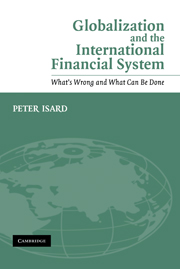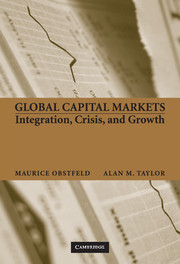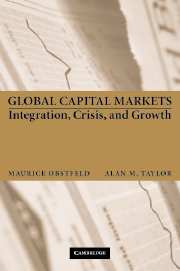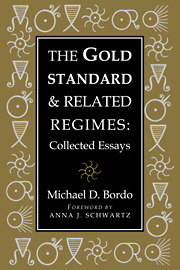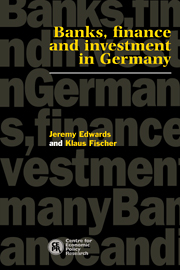Globalization and the International Financial System
This book provides prespectives on various aspects of the international financial system that contribute to financial crises and growth failures, and discusses the remedies that economists have proposed for addressing the underlying problems. It also sheds light on a central feature of the international financial system that remains mysterious to many economists and most non-economists: The International Monetary Fund and the factors that influence its effectiveness.
- Demystifies the International Monetary Fund and elaborates on the factors that influence its effectiveness
- Accessibly surveys the literature on the causes of international financial crises and current thinking about crisis prevention and resolution
- Summarizes the factors that can stimulate or impede economic growth and poverty reduction, using no math
Reviews & endorsements
"Peter Isard diligently and skillfully tackles the two major economic concerns of globalization--financial crises and groth failures--in a thorough but highly readable book that will appeal to both scholars and a broader audience....an objective and balanced discussion...His chapter on IMF operations is a must-read for students of international monetary relations. The depth and clarity of his descriptions of these operations are difficult to find anywhere else, and indeed were sorely lacking in the international political economy literature." - Political Science Quarterly
"...a thorough but highly readable book that will appeal to both scholars and a broader audience...His chapter on IMF operations is a must-read for students of international monetary relations. The depth and clarity of his descriptions of these operations are difficult to find anywhere else, and indeed were sorely lacking in the international political economy literature." Political Science Quarterly Anastasia Xenias, Columbia University
Product details
December 2004Paperback
9780521605076
384 pages
228 × 153 × 26 mm
0.51kg
15 b/w illus. 5 tables
Available
Table of Contents
- List of figures, tables and boxes
- List of abbreviations
- Acknowledgments and disclaimer
- Part I. Background:
- 1. Introduction
- 2. The evolution of the international monetary system
- 3. The international monetary fund
- Part II. International Financial Crises and Obstacles to Growth:
- 4. Factors contributing to international financial crises
- 5. The effects of crises and controversies over how to respond
- 6. Perspectives on economic growth and poverty reduction
- Part III. The Agenda for Reform:
- 7. What can individual countries do?
- 8. How can the international financial system be reformed?
- References
- Author index
- Subject index.

